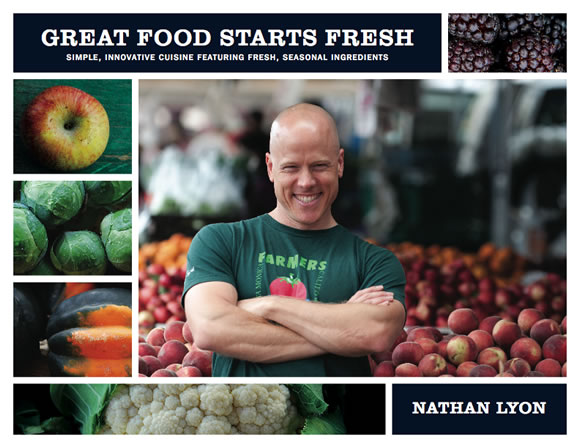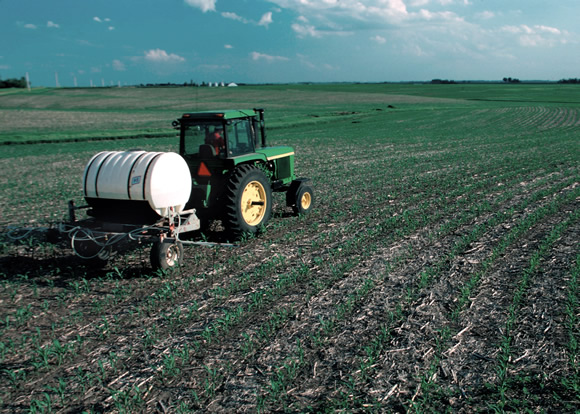Babble Vlog! We hear and see so much about “organic” these days, but what does organic really mean and why should we care? After researching lists and expert opinions online, I still had questions. So, I got in touch with my good friend and expert in fresh and sustainable cooking, Chef Nathan Lyon of Growing A Greener World on PBS. He gives me the big picture on organic and one simple rule to remember. Watch the Organic Banter video at Babble’s Family Kitchen.
So tell me: Do you buy organic? Why or why not?
CHEF NATHAN LYON

The big picture. “If you can afford it, buy organic whenever possible because it’s better for the planet.” Find Chef Nathan Lyon in the kitchen at Growing A Greener World. To pre-order your advance copy of Great Food Starts Fresh and to learn more about Chef Nathan Lyon, check out his website.
MORE RESOURCES
Dirty Dozen / Clean 15 from EWG’s Shopper’s Guide to Pesticides in Produce
Organic Food on Wikipedia
The New Dirty Dozen: 12 Foods to Eat Organic at The Daily Green.
Organic Foods: Are they Safer? More nutritious? from The Mayo Clinic.
Organic Certification at United States Department of Agriculture
13 Foods You Should Always Buy Organic at Reader’s Digest
What to Buy Organic at Parents.com
ORGANIC OR… UNPROCESSED?
All this talk about organic has got me thinking unprocessed. Specifically Andrew Wilder’s October Unprocessed. Do you think you could take the pledge and eat no processed foods for a whole month?

Photo Credit #1 (altered,background): FlickreviewR
Photo Credit #2: Great Food Starts Fresh, used with permission from Nathan Lyon
Photo Credit #3: Moreau1



So, I must start by saying my husband and I are farmers. We milked 80 cows but sold them 2 years ago. We now raise corn and soybeans on our family’s land. We grow GMO corn and beans. We use fertilizers and pesticides. They are extremely expensive, so we use the bare necessity to raise a crop. We also treated our cows with antibiotics when they were sick. I don’t buy organic unless it is cheaper than the non-organic choices. Which, in the rural community I live happens a lot because people know the facts about how food is raised, because they are the ones doing it. We use insecticide on our blackberry bushes and tomatoes we grow ourselves. I would be a hypocrite if I bought organic anything. I do believe local food is fresher, tastes better for that reason, and may still have more nutrients since it is fresher. But, local is a whole different discussion.
Raising animals in an organic manner is very difficult and sometimes at the cost of the animals’ care. Mastitis, for example, is serious business for milk cows. It is painful for them. Organic forms of treatments rarely work resulting in the cow dying or losing production in part or all of her udder. However, with antibiotics, the cows can recover quickly and continue to produce milk for a long time. In order for a cow to be organic, it can never have antibiotics, even when treating illness. Even when we treated cows with antibiotics, that milk was always dumped. All milk on the store shelves is antibiotic free. There are strict withholding periods and testing to ensure the milk is antibiotic free.
The American farmer is one member of society that constantly thinks about the next generation. If they destroy their farmland there will be nothing to leave to their children. Every farmer dreams of their son and/or daughter coming back to the farm. It is devastating to farmers when people say they are evil business men who are just after the next buck. They live on the farms with their families, if their practices were dangerous, they would be the first hurt. Whether it is large livestock production or large grain farms, these are family farmers who are making sure we have food to eat and a farm for their kids to come back to after college.
Organic or not organic. It is great that we get to choose, and we are not forced to purchase any certain type of food.